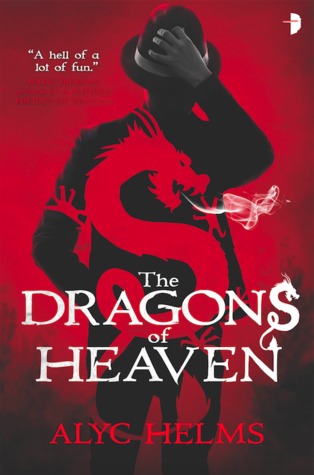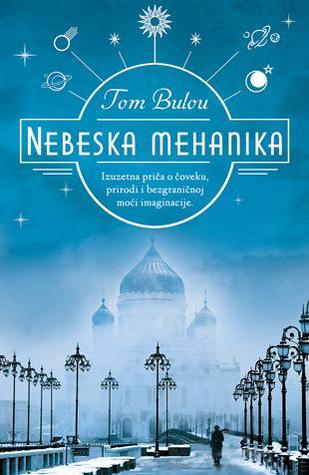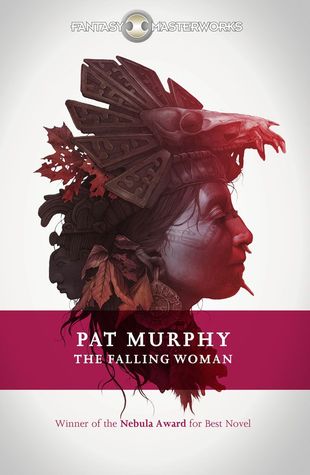A couple of years ago, I wrote a list of
Brilliant Books You've Never Heard Of. As Christmas is coming up, I thought it's time to update and expand the list!
Below are a few awesome books which even your bibliophile friends
probably haven't read yet. These are books which probably never made it to a Waterstones 3 for 2 table, books which don't appear on the Goodreads shelves of avid readers I follow. Some are older books, which were moderately successful in their time, but which are largely unfamiliar to millennials. So, you know, perfect gifts.
Mood: Happy, Adventurous
For those who like fun-filled stories filled with thrills and adventure
 The \ Occasional / Diamond Thief
The \ Occasional / Diamond Thief is a YA adventure scifi novel.
Kia Ugiagbe, is a 15-year-old girl on a distant planet. On her father's deathbed, he reveals a secret: hidden at the back of a drawer, there is a huge diamond. Her father, she realises, must have stolen it!
Fast paced, fun, and tense, The Occasional Diamond Thief is great fun. Kia is easy to root for: she's
hard-working, not brilliant at everything she does, but dedicated. She has a sense of humour and just the right amount of cheek.
There is a sequel, which is just as good. Read my
full review, then buy the books as a gift or for yourself!
 The Dragons of Heaven
The Dragons of Heaven is set in a world where superheroes and some kinds of magic are real.
Our hero is Mr Mystic. Able to control shadows and even drift from the 'real' world into a shadow realm, Mr Mystic is a fedora wearing, British-sounding, Chinese-magic-wielding martial arts expert. Oh, and she's also a woman, Missy Masters, who inherited the superpowers from the original Mr Mystic.
If you want a book that is fun, funny, thrilling, a bit romantic and sexy, joyful, whip-smart, and a good romp, this really should be up your street.
Read my
full review, then buy the books as a gift or for yourself!
Mood: Literary, coming of age, but exciting
For those who like coming of age novels with complexity, warmth and a plot that moves.
 The Chicken Soup Murder
The Chicken Soup Murder is told from the perspective of Michael, a primary school boy about to move on to "Big School".
However, all is not well in his world. His best friend's father has recently died. His neighbour's dog has died. And now his neighbour Irma is dating a policeman, whose son bullies Michael.
Then, Irma dies, and Michael suspects foul play.
The Chicken Soup Murder is a warm, addictive, gently amusing novel about the everyday tragedy that is death, but also a novel about childhood and growing up.
Read my
full review, then buy the books as a gift or for yourself!
 Konstantin
Konstantin is a biographical novel about a boy growing up in Russia,and becoming an oddball young man.
Konstantin is a boy with a huge imagination. After losing most of his hearing, he spends the rest of his life a bit removed from his peers. However, this is not at all a misery book. Konstantin is full of infectious enthusiasm, permanently fascinated, and brave, even foolhardy.
Beautiful prose and the energetic protagonist make this a joyful book. Read my full
review of Konstantin to find out more.
 Jasmine Nights
Jasmine Nights is a coming-of-age novel set in 1963 Thailand. It’s the story of Little Frog / Justin, a 12-year-old boy from a very rich family. Justin is a somewhat eccentric, aloof boy. Then, he is gradually nudged out of his shell by his grandmother, and by the kids who live next door...
Jasmine Nights is a story touching on race and prejudice, finding out about sex, Thailand, the periphery of the Vietnam War, different social classes, but above all else, it is the story of a lonely boy becoming slightly less lonely and growing up a little. Amusing and complex, it reminded me of To Kill a Mockingbird.
Read my full
review of Jasmine Nights to find out more.
Mood: Literary Science Fiction and Fantasy
For those who like their speculative fiction thoughtful and ambitious.
 The Falling Woman
The Falling Woman is a classic that few millennials will have read. It won a Nebula Award in 1987.
Elizabeth is an divorced archaeologist on a dig in Central America. She can glimpse ghosts of the past, especially at dusk and dawn. One day, one of the spectres looks at her and starts to talk...
Diane is her daughter, joining her on her dig after a bereavement. Diane hasn't seen Elizabeth since childhood, and isn't sure what she has gone out to find.
The story builds up its world and characters one step at a time. Gradually, it gains tension, a sense of the uncanny, a foreboding feel... Read my
full review, then buy the books as a gift or for yourself!
 Sequela
Sequela is the debut novel of a Scottish poet. It tells the story of a scientist whose job is to create sexually transmitted viruses (STVs). In this future, STVs have become fashionable: they indicate whom one has slept with. Each symptom pattern is linked to different powerbrokers, and every 'player' is trying to have the most rarefied rash pattern.
It's high concept, but really, this is a character-based thriller. The tension comes from social interactions, from office politics, from personal relationships and how they develop... It's a unique and frighteningly convincing novel.
Read my full
review of Sequela to find out more.
 The Beauty
The Beauty starts years after all the women have died. Men and boys have survived, seemingly unaffected by the bizarre fungus plague that wiped out womankind. It's a very short novel. It's postapocalyptic, it's horror, it's science fiction and it's unlike anything I've read: it's full of ideas, atmosphere and the uncanny, and it sticks with you long after you'd finished reading.
Read my full
review of The Beauty to find out more.
 In Great Waters
In Great Waters is set in an alternative history where merpeople are real. They are not like humans: fiercer, more direct, more single-minded. They can interbreed with humans, which results in physical and mental differences. Thus we meet Henry / Whistle, a crossbreed who is born in the sea but grows into adulthood among humans.
In Great Waters is outstanding because of its immersive, gradual worldbuilding. Tension builds up slowly: by the time your fascination is satisfied, the story has sneakily turned into a thriller that can't be put down.
Read my full
review of In Great Waters to find out more.
Mood: Childlike awe and terror
For those who remember how big and wonder-filled and scary the world was when we were kids... or for kids.
 Oy Yew
Oy Yew is a tiny boy who grows up sustaining himself on crumbs and the smells of food. One day, he is forced into servitude, first in a factory, then in a country mansion. His comrades in slavery are other waifs, children who arrived as boat people on tiny rafts.
But things are about to go from bad to worse: How come there have been so many accidents lately? What secrets lurk in the sinister Bone Room? And why is Master Jep suddenly so interested in Oy's thumbs?
This is a fantastically atmospheric novel. It's uncanny and tender and beautiful. Even as an adult reader, I was on the edge of my seat. Read my
full review, then buy the books as a gift or for yourself!
What books would you add to the list?
Have you read any excellent, but underrated / not very widely known books lately? Add a comment, give some recommendations!










